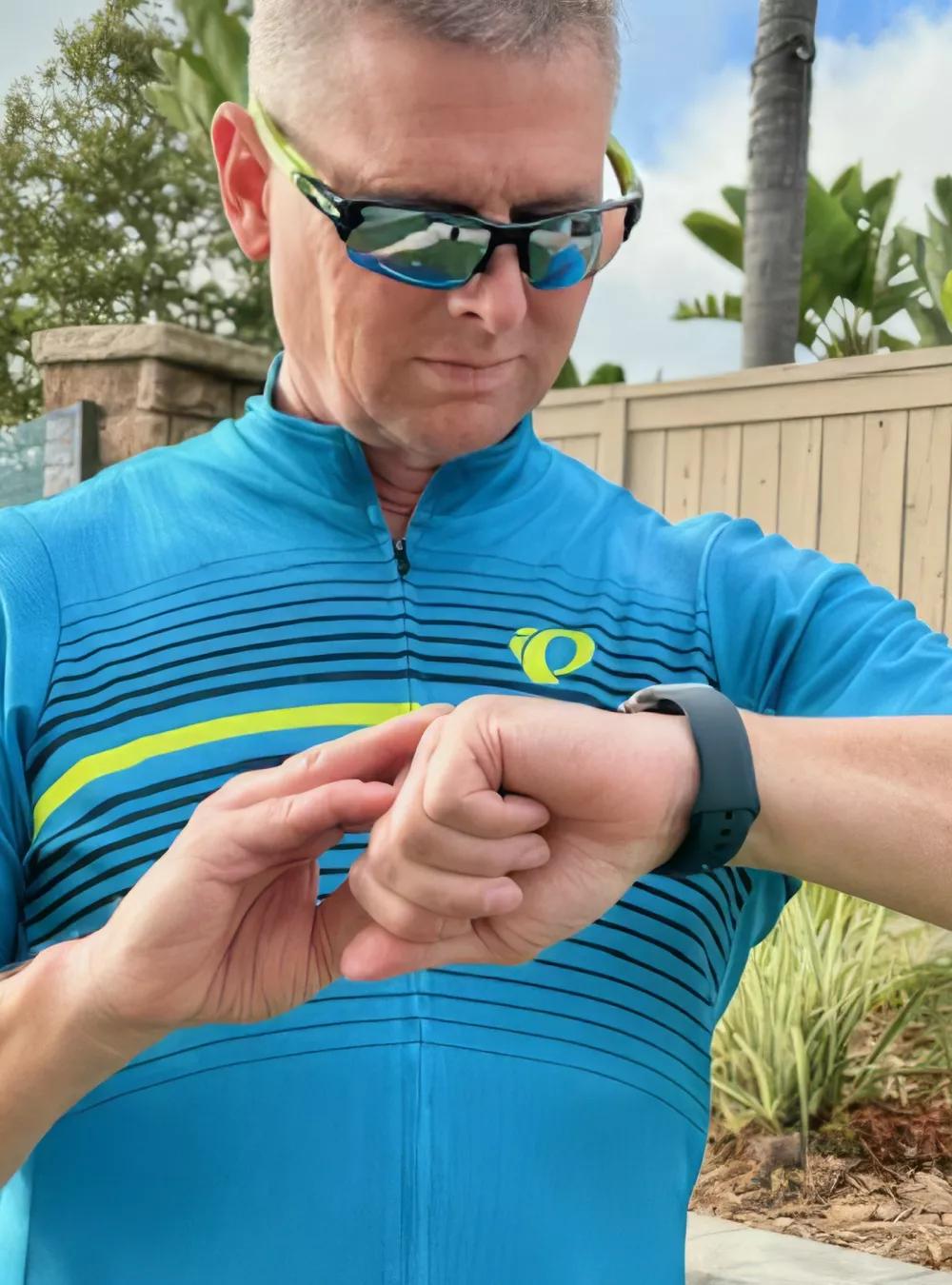Today’s military regularly uses technology to enhance performance. But what about managing mental wellness? A new MITRE application employs AI to help avert health crises and improve readiness.

Mentally Ready, Mission Ready—Real-time Monitoring for Service Member Well-being
In 2023, mental health conditions were the primary reason for service member hospitalizations. With suicide prevention a top Defense Department priority, mental wellness in the military is in the spotlight.
What’s at stake: The well-being of those who serve, as well as our nation’s warfighting capacity.
"Being mission ready is being not only physically ready, but mentally ready as well," says Linda Desens, Ph.D., principal health communication scientist at MITRE.
That belief inspired Desens and a team of researchers to develop the Technology Assisted Stress Control (TASC™) application prototype. TASC operates with off-the-shelf smartwatches to monitor physiological stress in real time—and get ahead of mental health challenges. The app uses a unique machine-learning, data-driven approach to get service members the help they need.
To pilot the application, MITRE partnered with the Computer Science Department at the University of California, Los Angeles (UCLA). Data collection drew from a pool of veteran volunteers from the UCLA student body and staff, who brought real-world experience from the military environment.
"MITRE's role in supporting the development of this technology is a critical enabler of our research," says Dr. Alex Young, professor at UCLA’s Department of Psychiatry.
Being mission ready is being not only physically ready, but mentally ready as well.
Early Warning for Early Intervention
"We set out to build a kind of early-warning system," says data scientist Lionel Levine, who worked closely with the UCLA team and co-led the project, along with Desens. "We wanted to be able to detect if a service member or veteran were in distress and target resources to keep the situation from escalating into a full-blown crisis."
Developed under our independent R&D program, TASC demonstrates the ability to do just that. The capability empowers military personnel to monitor their stress levels and manage their unique triggers.
For example, if "Sgt. Jones" shows trends in low heart rate variability and poor sleep and self-reports higher stress levels, they can receive customized feedback and strategies to mitigate stress (e.g., deep breathing exercises). TASC will also prompt them to connect with family, friends, or professionals for support.
For Desens, the research was shaped by personal experience. "My husband was an active-duty Marine for 30 years, both my sons served in the Marine Corps, and I worked for several years as the health promotion director at Headquarters Marine Corps.
"We’ve watched friends suffer from PTSD. We've lost friends to suicide. I want to do everything I can to prevent somebody from going down that dark hole."
High-Tech, High-Touch Approach
From smartwatches to rings and necklaces, wearable biometric sensors that detect stress aren’t new. So, how's TASC different?
Our research team developed an algorithm that continuously collects physiological data, as well as frequent self-assessments of behavior during everyday activities. It also collects user-reported stress triggers (think: family issues, finances, exercise).
This combination, along with advanced machine learning techniques, provides more-robust classification models to detect emotional distress that might otherwise go under the radar. TASC can then provide pre-programmed messaging to prompt the user to contact support persons or crisis lines, with a goal of automating these high-touch interventions in the future.
The prototype also offers customized service member, healthcare provider, and commander dashboards. "Airman Smith" can get a look at trends in their stress and sleep scores over time. Their doctor can view this data to help track their health progress between visits. Similarly, their commander could use anonymous, aggregated data to identify negative trends across the unit and employ targeted interventions. This could include support from mental health professionals, chaplains, and financial counselors.
Destigmatizing Mental Health Challenges
The app's Fast Healthcare Interoperable Resource (FHIR®) Application Programming Interface (API) is positioned for future integration of TASC data into electronic health records and other third-party health applications. TASC’s framework and technology can also be used for other evidence-based treatments, like mindfulness practice, cognitive-based therapy and stress inoculation training for PTSD.
Our experts have handed off the effort to UCLA to continue refining the prototype—with high hopes for its future impact. The goal: transfer the technology free of charge to government users for various applications in managing mental wellness.
Desens also hopes the innovation will help decrease the stigma around getting help. "It can be hard for our service members to talk about mental health challenges. We need to leverage this kind of technology and data in real time to get people the support they need, when they need it."
Join our community of innovators, learners, knowledge-sharers, and risk takers. View our Job Openings and Student Programs. Subscribe to our MITRE 360 Newsletter.